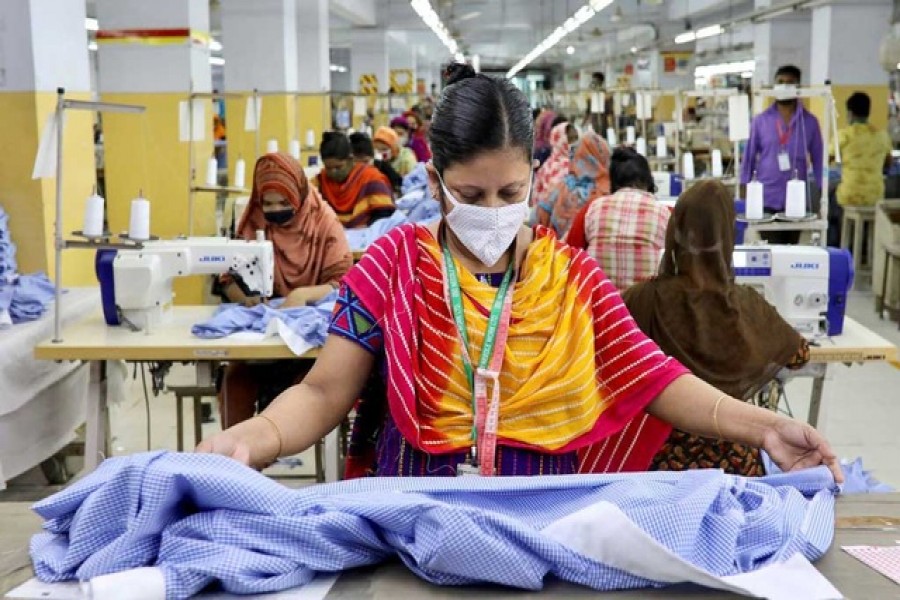Bangladesh’s economy has rebounded from the Covid-19 pandemic ‘much quicker’ than other nations in the region due to the measures taken by the authorities, according to a staff team from the International Monetary Fund, or IMF, bdnews24.com reports.
Led by Rahul Anand, assistant to the director at the IMF Institute for Capacity Development, the IMF team visited Dhaka from Dec 5-19 before releasing a statement on its view of the economic situation in the country on Sunday.
“Despite being hit by multiple waves of the Covid-19 pandemic, quick and decisive actions by the authorities, supported by the external environment, led to a much quicker rebound than Bangladesh’s regional peers,” the team wrote in a statement.
As the pandemic’s impact recedes, growth is expected to pick up to 6.6 percent in the current fiscal year and rise to 7.1 percent in FY23 as more of the population is vaccinated, it said.
However, the statement also warned that the uncertainty of this outlook remains high.
The team also noted concerns about inflation, which is projected to exceed targets due to non-food price inflation and the hike in fuel price.
“With the economy rebounding, the central bank should closely monitor inflationary pressures and stand ready to normalise,” it said.
According to the IMF’s projections, Bangladesh’s fiscal deficit will increase to 6.1 percent of GDP in FY22 due to pandemic-related spending. The current account deficit will also widen due to the import of capital goods, raw materials and commodities.
Despite this, public debt is expected to remain sustainable in the long-term.
It is necessary to support recovery from the pandemic while addressing Bangladesh’s current vulnerabilities, the statement said.
“Subsequently, priorities should shift to creating greater fiscal space, reducing fiscal risks, preserving the stability of the financial system, and modernising policy frameworks.”
The key to maintaining its competitiveness in the wake of the pandemic is to implement structural policies that focus on accelerating growth, attracting private investment and enhancing productivity, while building critical climate resilience, it said.
These include decisive reforms to support private sector-led growth, improved governance, and diversification of exports.
Other recommendations from the team included the removal of caps on lending and borrowing rates, which ‘should be phased out to strengthen market-based pricing, improve credit allocation and monetary transmission’.
It also encouraged greater exchange rate flexibility while safeguarding foreign exchange reserves to help buffer external shocks.
Covid-19 related financial policies must also be phased out in an ‘orderly’ way to reduce the exacerbation of the sector’s vulnerabilities, the statement said.
“Absent reforms, financial sector risks could be a drag on medium-term growth prospects.”
The IMF team called Bangladesh’s economic growth and social development since independence ‘impressive’.
However, to reach upper-middle income status by 2031 requires the country to build on this success while addressing its structural problems and modernising its policy, it said.
The IMF extended its support to help Bangladesh achieve this goal.
“The IMF stands ready to support the government’s reform efforts through policy advice and capacity building, including on monetary and fiscal policies, financial sector supervision and regulation, and macroeconomic statistics.”


